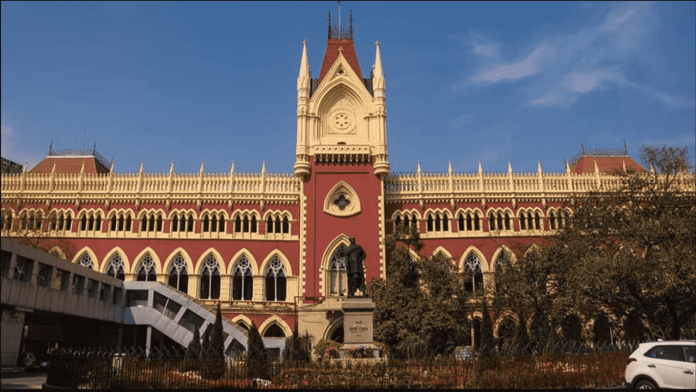The Calcutta High Court dismissed a Public Interest Litigation (PIL) filed challenging the constitutional validity of Section 4(C) of the West Bengal Land Reforms Act.
There is also a challenge to the order of conversion passed during the year 2015 by the District Land and Land Reforms Officer permitting conversion of land from existing classification to bastu. There is also a challenge to the planning permission obtained by the concerned persons, in whose favour the conversion order has been passed.
In terms of Section 6(d) of the West Bengal Land Reforms and Tenancy Tribunal Act, 1997 the tribunal has jurisdiction to decide application(s) relating to matters under any provisions of specified Act or matters relating to constitutional validity of any Act under the provisions of the specified Act.
This power, the Division Bench of Chief Justice T. S. Sivagnanam and Justice Hiranmay Bhattacharyya is of the view, is not only efficacious but an effective remedy. Equally so, the challenge to the conversion order is also to be done before the Tribunal in terms of the said enactment.
The advocate for the petitioners referred to Section 8 of the 1997 Act, which deals with exclusion of jurisdiction of a Court.
It is a settled legal principle that jurisdiction of the Court under Articles 226 and 227 of the Constitution cannot be divested by a Statute nonetheless the Court has taken a view that when the Statute provides for an alternate remedy, an aggrieved persons should not be permitted to bypass such a remedy in terms of Section 4.
The Tribunal consists of a Chairman with one judicial member and one administrative member. The Chairman and the judicial member shall be appointed by the Governor in consultation with the Chief Justice. In terms of sub-Section 3 of Section 4 no person shall be qualified for appointment as Chairman unless he has been a judge of a High Court or has held such a post for a period not less than one year in the office of the judicial member. Thus, taking the composition of the Tribunal into consideration, the remedy before the Tribunal is not only efficacious but it is also an effective remedy.
Therefore, the Court is of the view that by way of a public interest litigation petition the statutory provision or order of conversion cannot be entertained by the Court.
The advocate for the petitioners would submit that there is also a challenge to the planning permission granted in favour of the private respondents, who have utilized the land for putting up construction. Until and unless the petitioners are successful either in getting Section 4(C) of the Act declared as ultra vires or succeed in setting aside the order of conversion, the planning permission, which has been granted to the private respondents, will continue to remain valid. Assuming the petitioners are successful either in the challenge to Section 4(C) of the Act or in the challenge to the conversion order then it goes without saying that the planning permission which was granted would become void under law.
Therefore, the Court is of the view that the petitioners should not bypass the statutory remedy available under the provisions of the West Bengal Land Reforms and Tenancy Tribunal Act, 1997.


